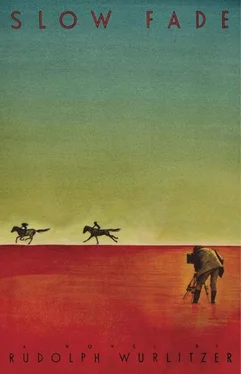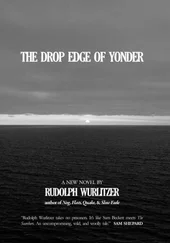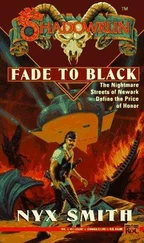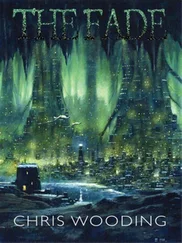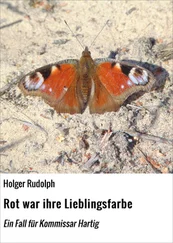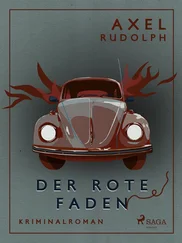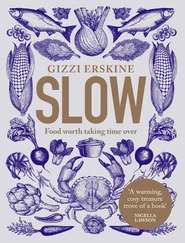THE NEXT day A.D. flew to New York. He was coming off the road missing one eye and just as broke as when he left. All he had going for him was a long-shot movie hustle dependent on a used-up director just fired off his last picture who thought he was dying or wanted to die or was afraid to die. Not to mention the director’s son, the Far East man, who held the keys to the story line and was another kind of casualty altogether. And then, of course, there was India, which A.D. refused to think about.
When he arrived at Kennedy Airport he checked into the airport bar for courage. Three drinks later he felt as if all the weary little dues and leaks in confidence and energy he had accumulated over the past month had suddenly surfaced and were demanding to be accounted for. His body ached as if it had been kicked, and his entire respiratory system seemed filled with a threat of foreclosure. He was holding himself so maniacally on the point that he had forgotten how to crawl off to the side and check for missing parts. In the face of all this he told himself that even if he was riding the wrong horse, it was the only horse he had and he was committed to flogging it until it crossed the finish line or dropped. Unfortunately he had forgotten to arrange for a place to stay and was unable to reach anyone on the phone. His lack of funds made him settle on the George Washington Hotel, one step away from the street and a step he had made too many times, down to and up from. Lying naked in the hot dead air of his room, he listened to the traffic outside and thought of Wesley Hardin making air-conditioned deals at the Sherry Netherland. Even though it was close to midnight he decided to call him anyway.
Evelyn answered the phone.
“I’d like to turn in a few pages and pick up some cash,” he said.
“I guess so,” she replied vaguely, not sure whom she was talking to.
A.D. tried to make the connection for her. “When you held my hand that time in the hospital it got me through a rough patch.”
She remembered and said she would see him when he got there.
But instead of going directly to the Sherry Netherland, A.D. walked down Third Avenue, then across St. Mark’s Place to Second Avenue, and down Second to a small nightclub, the Blue Rooster. Over the years A.D. had booked several acts into the Rooster and often used the place as a hangout. He had on his Vegas wardrobe, light maroon slacks and a lemon-colored shirt plus a Samsonite briefcase. His change in style, together with his black eye patch, caused the bartender to drop behind the bar in feigned astonishment.
“Mr. Ballou,” he said on reappearing. “You’ve made a score.”
“I have at that,” A.D. admitted. “More or less.”
One of the semiregulars, a black bass player, approached him from the men’s room. “A.D., my main man,” he exclaimed with exaggerated warmth. “You’re lookin’ good, real good. Can you lend me a deuce?”
A.D. gave him a fifth of what he asked for and after a few mumbled words about the futility of life in general the bass player slipped out the door to “see a man about a Chinese lady.”
A.D. went over to the piano and bunched a few chords together. He felt disoriented and melancholy and unable to repress the doubts gnawing up inside him.
The owner of the club, a fat middle-aged Italian in a stained sweat shirt and baggy tuxedo pants, leaned over the back of the piano.
“Sorry about the eye,” he said in a flat voice. “But the patch does something for you. You must have lost it on the road.”
“More or less on the road,” A.D. said, not wanting to get into it. “I’ve got a lawsuit going.”
“Litigation is good for the soul,” the owner said. “As long as you don’t count on a payoff. I’ve got several going myself. By the way, I’m looking for a manager for this joint.”
“I’ve changed my game,” A.D. said. “I’m into films. You ever hear of Wesley Hardin? I’m producing something for him.”
“Didn’t he do a Western with Clint Eastwood?”
“Probably. He’s cornered the market on Westerns.”
“I heard they aren’t making them any more.”
“I’m pushing him into a new genre. High adventure set in India.”
“Why not?” the owner said, not believing him. “When you strike out in Hollywood, get back to me. Once a nickel-and-dime man always a nickel-and-dime man. I think Cagney said that.”
A.D. pushed back the piano stool. “I’ll send you a ticket to the first screening.”
He made his way into the thick humid night wishing he was anywhere else but New York. As he walked slowly uptown, he tried to find a rhythm or attitude that would let him sting and float with Wesley, but when he arrived at the Sherry Netherland he was tight and breathless and decidedly off the point.
When Wesley opened the door, he barely glanced at A.D.; his attention was nailed to the scene behind him where Sidney, the second unit cameraman, Evelyn, and a distraught bald-headed man in a blue and white seersucker suit peered anxiously out an open window. An older couple in evening clothes sat on the couch, refusing to acknowledge Wesley pacing back and forth.
“There’s been an accident,” the man said. A.D. recognized him as an English character actor, a colonel or a butler or a chauffeur.
“Not at all,” replied the white-haired woman sitting next to him. “It was quite deliberate. Wesley threw it through the window with both hands. If anyone is killed, he’ll go to jail and I won’t raise one finger in his defense.” She twisted her thin patrician head to stare up at A.D. “Are you the house detective? If so, I suggest an action.”
“I’m a producer.”
“Indeed. Then you are useless.”
Wesley came to a halt in front of her. He looked quite mad standing there in his silk pajama bottoms and loose karate jacket, his thick white hair sticking straight out from the sides of his head as if an electric current had run through it. A.D. was stunned at how pale and thin he was and it occurred to him that Wesley was incapable of directing a film, not to mention his own life.
“Amanda, my darling,” Wesley said, looking down on her. “You are a ferocious and ignorant cunt.”
“And you have lost your mind,” she replied. “You haven’t had anything new to say for years. I can’t even remember when you last directed a decent picture, let alone a semicoherent scene. You’ve lost your dignity, and it’s shameful, Wesley.”
“Here, here,” her companion said stiffly. “I must say, Wesley, as much as we have been devoted to you in the past, it seems impossible to continue being a witness to your willful disintegration.”
“Then I suggest you leave.”
“Our intention exactly.”
As they stood up there was a knock on the door.
“I’ll handle this one,” the bald-headed man said. “It will be my last act as your agent.”
He opened the door to let in the hotel manager.
“Has there been loss of life?” Amanda asked.
“No one was hurt, thank God,” said the manager. “But I must ask you to remain until this is sorted out. I don’t want to have to call the police.”
Amanda pushed him out of the way. “Don’t be absurd. Mr. Hardin is solely responsible for this act, as he is for all his acts.”
As Evelyn and Wesley moved forward with the agent to deal with the hotel manager, Sidney motioned to A.D. to join him in the bedroom.
“He threw my video camera out the window,” Sidney said, closing the door and sitting down on the bed. “I can’t be in that room any more. I’m trying to keep it contained, but when the surf is up with Wes it’s hard to stay in the water. And it was very good what he was doing. He was actually weeping at one point, talking about his friends that had died, different films, that whole scandal with Jack Warner and Errol Flynn. And then he just says this is totally profane and that he hates video, the way it gets under the skin and promotes the wrong kind of information, how falsely seductive it is. He started to rant on and on and I said, hey, listen, you were the one that asked for video. Most of the stuff I shot is in sixteen. I don’t care about video. Let’s never mention the word again. And he says ‘right’ and throws the fucking thing out the window.”
Читать дальше
